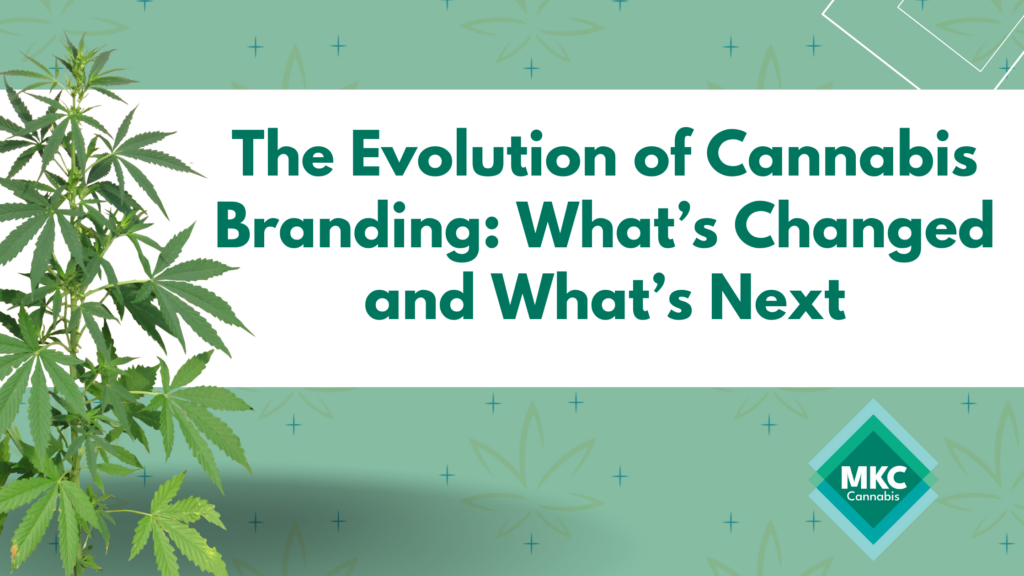The cannabis industry has undergone a remarkable transformation over the past few decades, and with it, cannabis branding has evolved in ways that reflect changing societal attitudes, regulatory landscapes, and consumer preferences. What once was an industry on the fringes has now entered the mainstream, bringing with it a new era of sophisticated, innovative, and professional branding. In this blog, we’ll explore how cannabis branding has evolved, what has driven these changes, and what we can expect in the future.
The Early Days of Cannabis Branding
Counterculture Roots
In the early days, cannabis branding was deeply rooted in counterculture. It was often associated with rebelliousness, anti-establishment sentiments, and underground movements. The branding reflected this, with visuals and messaging that were edgy, bold, and often controversial.
- DIY Aesthetics: Early cannabis brands often had a homemade, grassroots feel. Packaging was simple, with hand-drawn logos and designs that emphasized the plant’s alternative, countercultural image.
- Subcultural Symbols: Common symbols included tie-dye patterns, peace signs, and psychedelic imagery, all of which were designed to resonate with a niche audience that identified with the countercultural movement.
Example Quote: “In the early days, cannabis branding was more about defiance and less about sophistication. It was raw, unpolished, and unapologetically rebellious,” says Jane Smith, Cannabis Historian at MKC Cannabis.
The Shift Towards Legalization and Mainstream Acceptance
Professionalization of Cannabis Branding
As cannabis began to be legalized in various states and countries, the industry underwent a significant shift. With legalization came the need for professionalization, and cannabis branding started to evolve to appeal to a broader, more mainstream audience.
- Corporate Aesthetics: Brands began adopting more polished, corporate aesthetics. Logos became sleeker, packaging more refined, and the overall branding more aligned with mainstream consumer products.
- Health and Wellness Focus: The narrative around cannabis shifted from one of rebellion to one of health and wellness. Brands started to emphasize the therapeutic benefits of cannabis, using branding that was clean, modern, and focused on wellness.
Where to Use Data: Reference reports from New Frontier Data to highlight the growing consumer demand for health-focused cannabis products.
Diversification of the Market
With legalization, the cannabis market also diversified. No longer catering exclusively to recreational users, brands began targeting different segments of the market, including medical patients, wellness enthusiasts, and even luxury consumers.
- Targeted Branding: Brands began developing targeted branding strategies to appeal to specific demographics. For example, luxury cannabis brands adopted high-end aesthetics, while wellness brands focused on organic, natural imagery.
- Product Innovation: The diversification of the market also led to product innovation, with brands offering a wider range of products, from edibles and topicals to CBD-infused wellness products.
Example Quote: “Legalization brought with it the need to appeal to a broader audience. Cannabis branding evolved to meet the demands of different consumer segments, each with its own set of expectations,” notes John Doe, Marketing Director at MKC Cannabis.
The Current Landscape of Cannabis Branding
Emphasis on Authenticity and Transparency
In today’s cannabis market, authenticity and transparency are key drivers of successful branding. Consumers are more informed and discerning than ever, and they expect brands to be honest about their sourcing, production practices, and product quality.
- Transparent Labeling: Brands are now expected to provide detailed information about their products, including sourcing, cultivation methods, and ingredient lists. This transparency builds trust with consumers.
- Storytelling: Authentic storytelling has become a central element of cannabis branding. Brands that share their journey, values, and mission in an authentic way are more likely to connect with consumers on a deeper level.
Where to Use Data: Cite consumer trust studies from BDS Analytics to emphasize the importance of authenticity and transparency in building brand loyalty.
Social Responsibility and Sustainability
Another significant trend in current cannabis branding is the emphasis on social responsibility and sustainability. Consumers, particularly younger generations, are increasingly drawn to brands that align with their values, particularly around environmental and social issues.
- Sustainable Practices: Many cannabis brands are adopting sustainable practices, from organic farming to eco-friendly packaging, and making these practices a central part of their branding.
- Social Impact: Brands are also focusing on social impact, whether through supporting cannabis legalization efforts, advocating for criminal justice reform, or contributing to local communities.
Example Quote: “Today’s consumers are looking for more than just a product—they want to support brands that align with their values. Cannabis brands that prioritize sustainability and social responsibility are winning consumer loyalty,” says Laura White, Brand Strategist at MKC Cannabis.
What’s Next for Cannabis Branding?
Increasing Normalization and Mainstreaming
As cannabis becomes more widely accepted and legalized across more regions, branding is likely to continue moving towards normalization. This means that cannabis brands will increasingly resemble those in other consumer goods industries, with a focus on mass appeal and broad market strategies.
- Mainstream Advertising: Expect to see more cannabis brands utilizing mainstream advertising channels as regulations loosen, including television, radio, and large-scale digital campaigns.
- Cross-Industry Partnerships: Cannabis brands may also begin to partner with companies in other industries, such as food and beverage, health and wellness, and even fashion, to further integrate cannabis into mainstream consumer culture.
Where to Use Data: Use projections from Marijuana Business Daily to discuss the future growth of the cannabis market and its increasing normalization.
Technology-Driven Personalization
The future of cannabis branding will likely be heavily influenced by technology, particularly in the realm of personalized marketing and consumer experiences.
- Data-Driven Marketing: Brands will leverage data analytics to create highly personalized marketing campaigns, tailoring products and messaging to individual consumer preferences.
- E-commerce and Digital Platforms: As e-commerce continues to grow, cannabis brands will increasingly focus on creating seamless, personalized online shopping experiences.
Example Quote: “The future of cannabis branding lies in personalization. Brands that can leverage technology to deliver customized experiences will lead the market,” explains Kevin Green, Tech Analyst at MKC Cannabis.
Evolve Your Cannabis Brand with MKC Cannabis
The evolution of cannabis branding reflects the broader changes in the industry, from its countercultural roots to its current mainstream acceptance and beyond. As the market continues to grow and evolve, staying ahead of branding trends will be essential for success. At MKC Cannabis, we specialize in helping cannabis brands navigate this dynamic landscape, offering expert guidance on creating brands that resonate with today’s consumers and stand the test of time.
Ready to evolve your cannabis brand? Explore our brand guide and check out our portfolio to see how we’ve helped other businesses thrive. Partner with MKC Cannabis to build a brand that’s not only relevant today but also prepared for the future.
By working with MKC Cannabis, you gain access to top-tier branding services and become part of a mission to break through stigma and promote safe access to cannabis. Let’s innovate and grow together.







